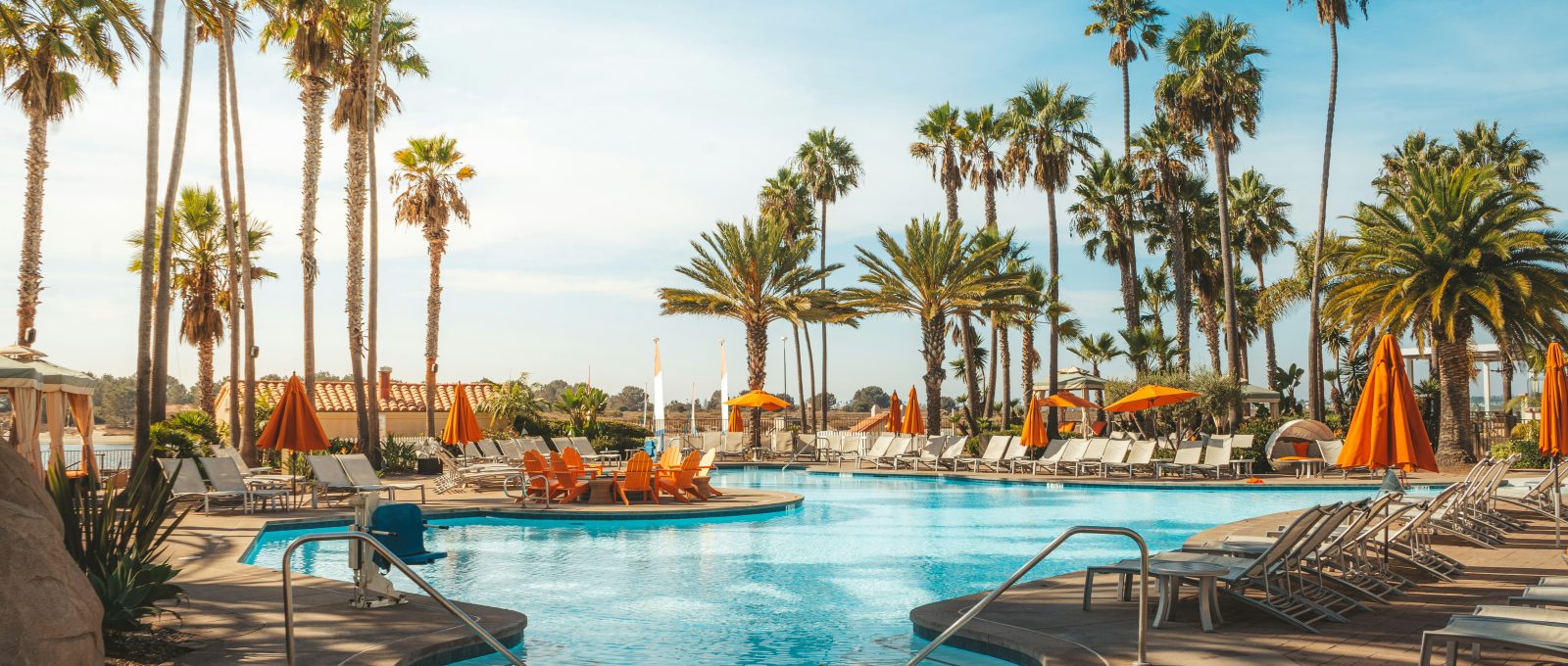Introduction
When planning a vacation, one of the most crucial decisions you’ll face is choosing where to stay. Should you book an all-inclusive resort where everything from meals to activities is covered, or opt for a traditional hotel that gives you the freedom to explore on your own terms? Both options offer distinct advantages, and the best choice depends on your personal travel style, budget, and what you want out of your holiday. In this blog, we’ll dive into the key differences between all-inclusive resorts and traditional hotels to help you decide which accommodation is the perfect fit for your next getaway.
All-Inclusive Resorts vs. Traditional Hotels
Deciding between an all-inclusive resort and a traditional hotel can significantly impact your travel experience. Each offers a distinct style of vacationing, and understanding the nuances between them can help you choose the right accommodation for your next trip.
All-Inclusive Resorts
All-inclusive resorts are often the go-to choice for travelers seeking a hassle-free holiday. These resorts offer a fixed price that includes almost every aspect of your holiday—lodging, meals, drinks, and often a variety of recreational activities. This can simplify budgeting as most expenses are paid upfront. All-inclusive resorts typically boast extensive amenities like swimming pools, spas, fitness centers, and entertainment options right on the property. They cater to a broad spectrum of travelers, from families looking for kid-friendly activities to couples desiring a romantic getaway. Another prominent feature is the convenience of having everything at your fingertips, which reduces the need to venture outside the resort. This can be particularly appealing in unfamiliar or remote locations.
Traditional Hotels
Traditional hotels differ significantly as they usually provide lodging and basic services only, with meals, activities, and other amenities charged separately. This allows guests greater flexibility to explore local dining and entertainment options outside the hotel. Traditional hotels range from budget-friendly options to luxurious five-star properties, offering a diverse choice based on your preferences and budget. Staying at a traditional hotel can give you a more authentic experience of the area, encouraging you to interact more with the local community, culture, and cuisine. Moreover, this type of accommodation is often preferred by business travelers or those planning a short stay, as it usually does not require a significant commitment to a full-board package.
Factors to Consider
When choosing between an all-inclusive resort and a traditional hotel, several factors can influence your decision. Here’s a closer look at some key aspects to consider:
Cost Comparison
• All-Inclusive Resorts: Initially, all-inclusive resorts may seem pricier, but they can be economically beneficial for travelers who wish to indulge freely in food, drinks, and activities without worrying about the tally of each expense. They are especially cost-effective for families, as many resorts offer children’s activities and clubs as part of the deal.
• Traditional Hotels: Generally, traditional hotels have a lower upfront cost. However, expenses can add up quickly depending on your lifestyle. Dining out, exploring, and entertainments can significantly increase your budget, which requires careful planning and management.
Deciding on all-inclusive or traditional largely depends on how well you can predict your spending habits and preferences before you travel.
Food and Beverage Options
• All-Inclusive Resorts: These resorts often feature multiple dining venues offering various cuisines included in your package. The unlimited beverages, including alcohol, can also be a significant perk. However, some might find the quality and variety of food repetitive over longer stays.
• Traditional Hotels: Staying at traditional hotels means you have the freedom to explore local eateries and experience regional flavors, which can be a substantial part of traveling. This is especially appealing to food enthusiasts who look to culinary experiences as a vital element of their travels.
Activities and Entertainment
• All-Inclusive Resorts: These resorts typically offer a wide range of activities, from watersports to dance classes and live shows, all included in the price. This can be great if you’re looking for an active holiday without the hassle of organizing or booking individual activities.
• Traditional Hotels: While some luxury hotels might offer considerable amenities, most traditional hotels keep entertainment and activity offerings minimal, which encourages guests to go out and explore the local area. This can lead to more personalized and memorable experiences, albeit sometimes at an additional cost.
Your choice between all-inclusive resorts and traditional hotels should align with your vacation goals, budget, and the type of experience you want to have. Whether you seek a relaxing escape with everything sorted or an adventurous exploration sprinkled with local culture, your accommodation plays a crucial role in shaping your trip.
Pros and Cons
All-Inclusive Resorts
When considering all-inclusive resorts, the foremost advantage is convenience. From the moment you check in, your meals, drinks, and often a range of activities are covered. This can significantly reduce the stress of budgeting while on vacation as you’re not constantly reaching for your wallet. Additionally, these resorts are designed to satisfy every need onsite, which means entertainment and relaxation are always within reach. Many resorts also offer a variety of dining options catering to different dietary preferences and cuisines, making them appealing for travelers with specific tastes.
However, the all-inclusive model does have its drawbacks. Because everything is centered within the resort, you might miss out on local experiences and cuisines. Furthermore, while these resorts offer many activities, they can be crowded, and the quality of services and facilities may vary. Additionally, all-inclusive resorts can be more expensive upfront; although the cost covers most things, it may not always represent the best value for money if you’re someone who prefers exploring more than staying in one place.
Traditional Hotels
Traditional hotels, on the other hand, offer flexibility that appeals to many travelers. Staying at a hotel means you’re free to explore the destination at your leisure, try local restaurants, and experience the culture more authentically. This accommodation style also usually offers a variety of price points, from budget to luxury, giving you control over how much you spend. Hotels are typically well-located, making it easier to visit a wide range of attractions.
The cons of choosing a traditional hotel stem mainly from the cost-efficiency perspective. Unlike all-inclusive resorts, where food and activities are part of your package, every meal and experience adds to the total cost of your trip when staying at a hotel. Additionally, amenities like internet access, parking, and breakfast might come with additional charges, which can add up. There is also the aspect of unpredictability in terms of budgeting, as fluctuating prices for dining and activities can affect your overall expenditure.
Choosing the Right Option for You
Travel Preferences
Your decision between an all-inclusive resort and a traditional hotel could heavily depend on your travel preferences. If you cherish the idea of a hassle-free holiday where you don’t have to make too many decisions about where to eat or what to do every day, an all-inclusive resort might be ideal for you. These resorts are particularly attractive if you’re traveling with family as they offer programs and activities for kids which can give adults time to relax.
Conversely, if you’re the type of traveler who seeks adventure, enjoys trying local dishes, and likes to create a unique itinerary, a traditional hotel would likely suit you better. This option allows you the freedom to explore, change plans, and discover hidden gems without being tied to a specific location.
Budget Constraints
Your budget will play a crucial role in determining the right accommodation type for your trip. All-inclusive resorts can initially seem more expensive, but they often become more cost-effective for families or groups who would otherwise spend significantly on dining and activities daily. They also provide the benefit of paying for most of the trip upfront, which can be advantageous for budget management.
If you are traveling solo or as a couple, or if you’re someone who prefers minimalism over luxury, traditional hotels might offer more value. They provide the flexibility to choose where your money goes whether it’s on local eateries, budget-friendly tourist spots, or splurging on a unique experience. The key is to do some research beforehand to estimate potential expenses outside the hotel to ensure it fits within your budget.
Choosing between an all-inclusive resort and a traditional hotel boils down to understanding your travel preferences and financial constraints. Each offers distinct benefits and challenges, and the best choice depends on what you value most in your travel experience. Whether you prioritize convenience, flexibility, cost, or authenticity, there’s a perfect option out there for every type of traveler.
Conclusion
Deciding between an all-inclusive resort and a traditional hotel truly depends on what kind of experience you’re looking for. All-inclusive resorts are perfect for travelers seeking a convenient, worry-free holiday where entertainment, dining, and activities are just a step away from your room. Meanwhile, traditional hotels offer flexibility and a chance to explore local culture and cuisine at your own pace. Before making your choice, consider your travel preferences, budget, and the type of experience you want to embrace on your journey. Whether lounging by the pool with a cocktail in hand or exploring bustling city streets, your decision should align with your dream vacation vision.







Leave a Comment